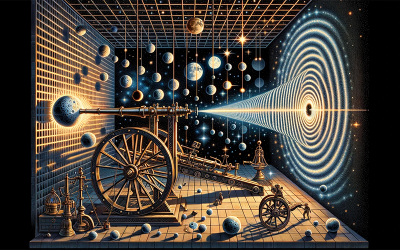- cross-posted to:
- [email protected]
- cross-posted to:
- [email protected]
At first blush, this article seems to say that there’s a solid hypothesis for which the math works consistently, and they know what they want to do in order to test that hypothesis. It’s just a matter of designing and performing experiments.
But then, I read this:
[Co-author] Weller-Davies added: “A delicate interplay must exist if quantum particles such as atoms are able to bend classical spacetime. There must be a fundamental trade-off between the wave nature of atoms, and how large the random fluctuations in spacetime need to be.”
I know atoms aren’t “particles,” and I’m pretty damned sure they’re also not quanta.
Atoms are composite particles. And they surely are quantum particles as you need quantum mechanics to describe their behavior
So, we’re just calling anything a “theory” nowadays? How about the scientific method? Or is that just too much work for anybody in a post-Einstein world?
if everything is classical, a whole lot of stuff is going to be tough to explain like quantum superposition as it’s used in modern qubits, or quantum tunneling experiments that have proven effective. Heck I’m even interested in the double slit experiment explanation in the context of these fluctuations from the paper
I’ve always thought the double slit experiment was easily explained by the fact that time as observed from the particles point of view doesn’t pass. Therefore, to the particle, the order of events in the measurement are meaningless. So the measurement you took afterward happened before from the particles point of view.
While it’s true that a photon doesn’t see time pass, an electron does and they exhibit the same behavior in the double slit experiment. I don’t see how the particles perception of time explains the results.
There is some current theories that time is a manifestation of entropy, and it isn’t actually real. If that’s true, then the idea would still hold. But, to be fair, if time doesn’t exist, that still doesn’t necessarily mean the double slit experiment is resolved.
You’re implying that the double slit experiment is unresolved. What do you mean by that?
Edit: I’d also be interested to read the articles about entropy and time. Could you link one please?
So this is your idea of easily explainable?
Are you always this rude to strangers on the internet?
I just didnt understand what you said, I didnt want to be rude sorry




